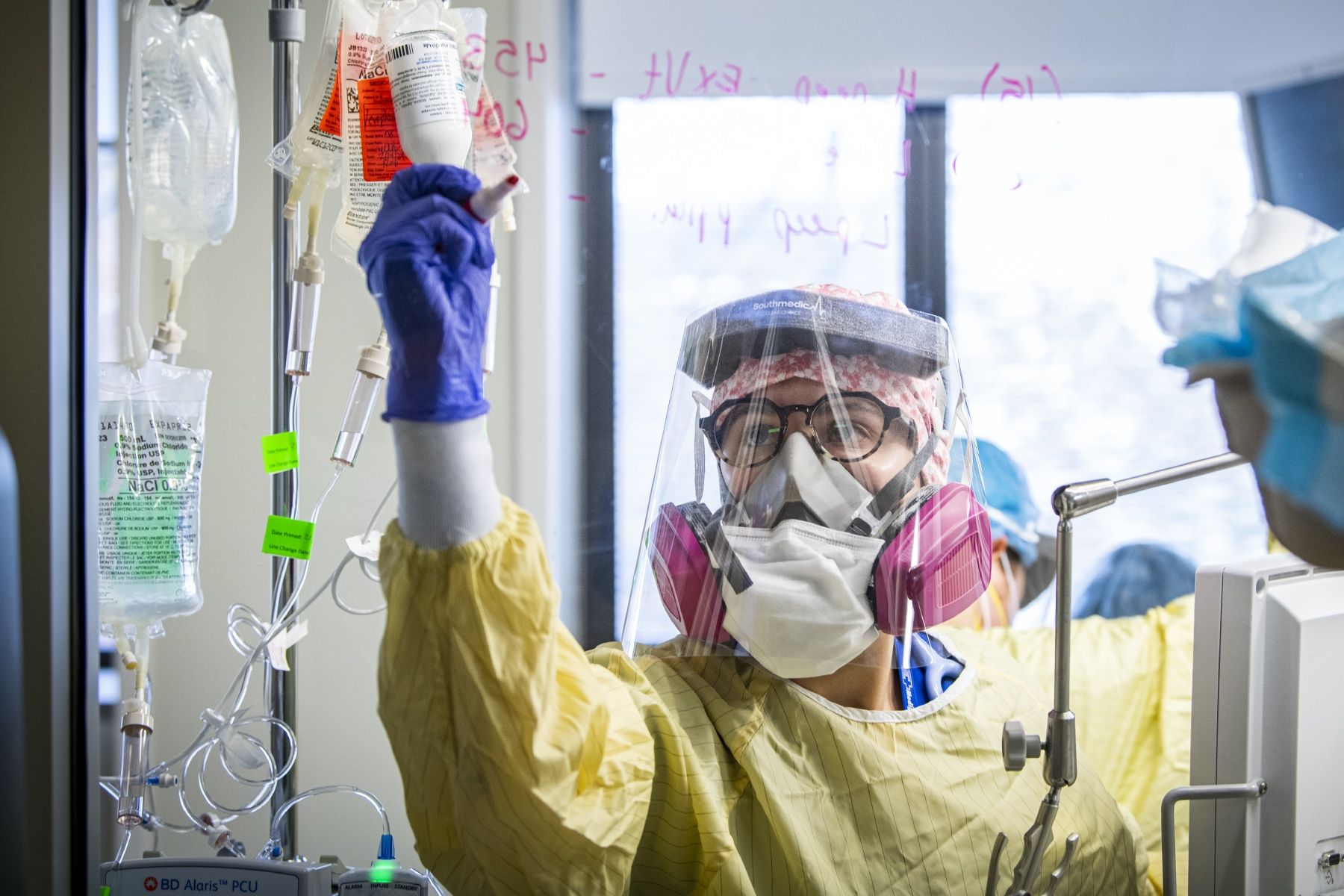
This year, more than ever, our health care system is relying on RTs. As frontline workers, they have played important roles behind the front lines of the pandemic forcing RTs into new territory like never before.
“Pre-pandemic, a typically busy day had the three or four RTs working in K2 caring for 24 or 25 ventilators,” says Ray Milton, Professional Practice Leader for Respiratory Therapy Services. “At the peak of COVID-19 activity there were approximately 65 ventilated patients, most of whom were sicker than we had ever seen. Normal coverage and tasks changed dramatically in order to meet the increased acuity and occupancy in newly expanded ICU spaces.”
To assist in meeting these needs, RT students provided care under supervision of RTs and new RT assistant (RTA) positions were created into which 11 students were hired. Students worked as RTAs on their days off or after student days were complete. They functioned at as high a level as possible within their training and limits of not yet having licenses to practice. This helped to free up RTs to perform the most vital tasks while RTAs set up and reprocessed ventilators and airway equipment, processed point of care blood gas samples, and anything else that needed to be done.
At KHSC, there are up to 15 RT students from Algonquin College and eight students from St. Clair College in their consolidating and final year. “Last year, once the students arrived, many people adapted in a rapidly changing environment to ensure that students had rich learning experiences that met all their learning objectives. Their education was fast-tracked while meeting learning objectives,” says Ray.
The KHSC staff responsible for coordinating student activities, the schools and the regulatory college were extremely responsive in making sure RT students could complete their education and obtain their licenses as soon as possible.
“As a student starting clinical at the height of COVID-19, I was quickly immersed in the ICU atmosphere and everything that comes with it,” says Rachael Hube. “The RT's put a lot of trust in my knowledge and ability to care for patients and I truly believe that has helped me get to where I am today. Towards the end of my clinical experience an opportunity to become a respiratory therapy assistant presented itself.
“Working with COVID-19 patients so early into my career has enhanced my ability to work and think under pressure and implement critical thinking skills while being cognizant of providing excellent patient care in a high stress environment. We were fortunate enough to be fit tested for the P100 respirators, which have been indispensable in treating patients with COVID-19. It has afforded us the ability to continue to provide exceptional patient care and medical interventions without feeling like we are going to be exposed or risk infecting our family and friends. We would not have been able to do our jobs effectively without adequate access to PPE.
“It was a very busy year but I am proud to say that I have learned so much already and I could not have done it without all the incredible RT's that work at KHSC. I am extremely thankful for them and everything they do and cannot wait to see what the future holds for the RT profession,” says Rachael.
Along with the students, RTs were redeployed from all over KHSC and beyond to help at the peak of our COVID-19 activity. “They came from the OR, Pulmonary function lab, Ventilator Equipment Pool, research, the community, and out of retirement,” said Ray. Many had not worked in these environments in years or since their initial training. It was amazing how quickly they were able to adapt and provide excellent care under exceptional circumstances.
“I don’t think we could have accomplished what we did to care for COVID-19 patients without the help from these dedicated professionals working collaboratively with all members of the healthcare team.”
KHSC employs almost 90 RTs who work in diverse areas including the Ventilator Equipment Pool, Pulmonary Function Lab, operating room, acute care, critical care, labor and deliver, NICU, ED and at Providence Care Hospital.
Gallery
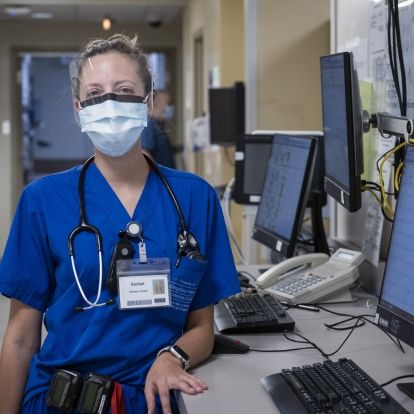
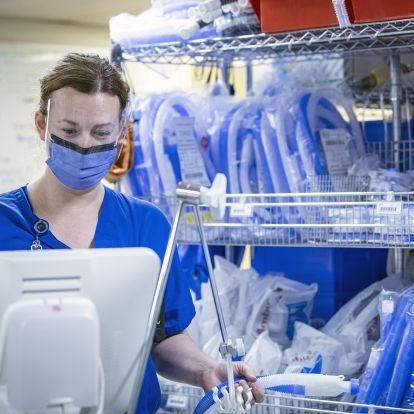
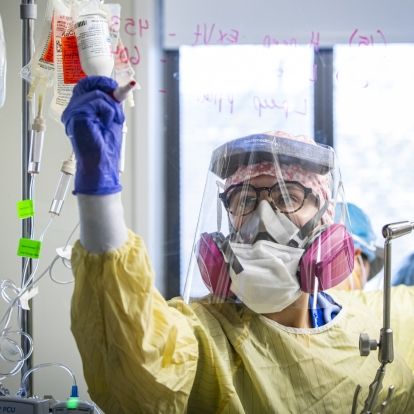
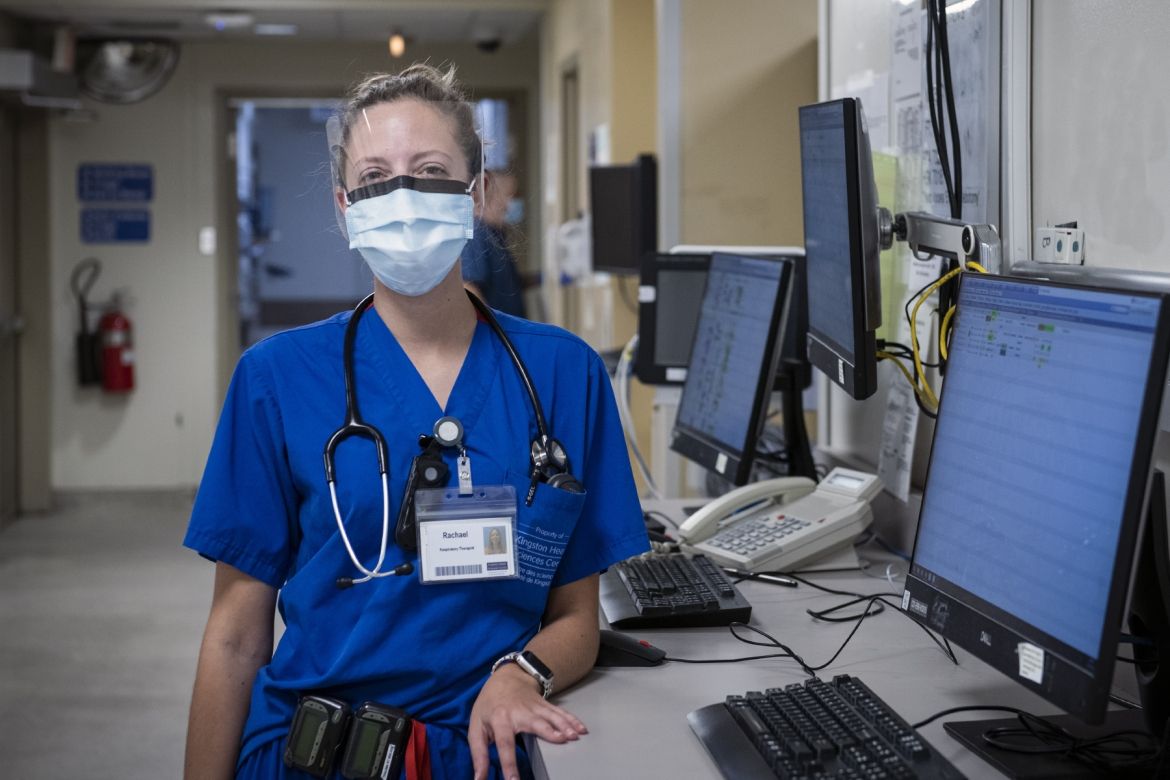
Working with COVID-19 patients so early into her career has enhanced Rachael Hube’s ability to work and think under pressure and implement critical thinking skills while being cognizant of providing excellent patient care in a high stress environment.
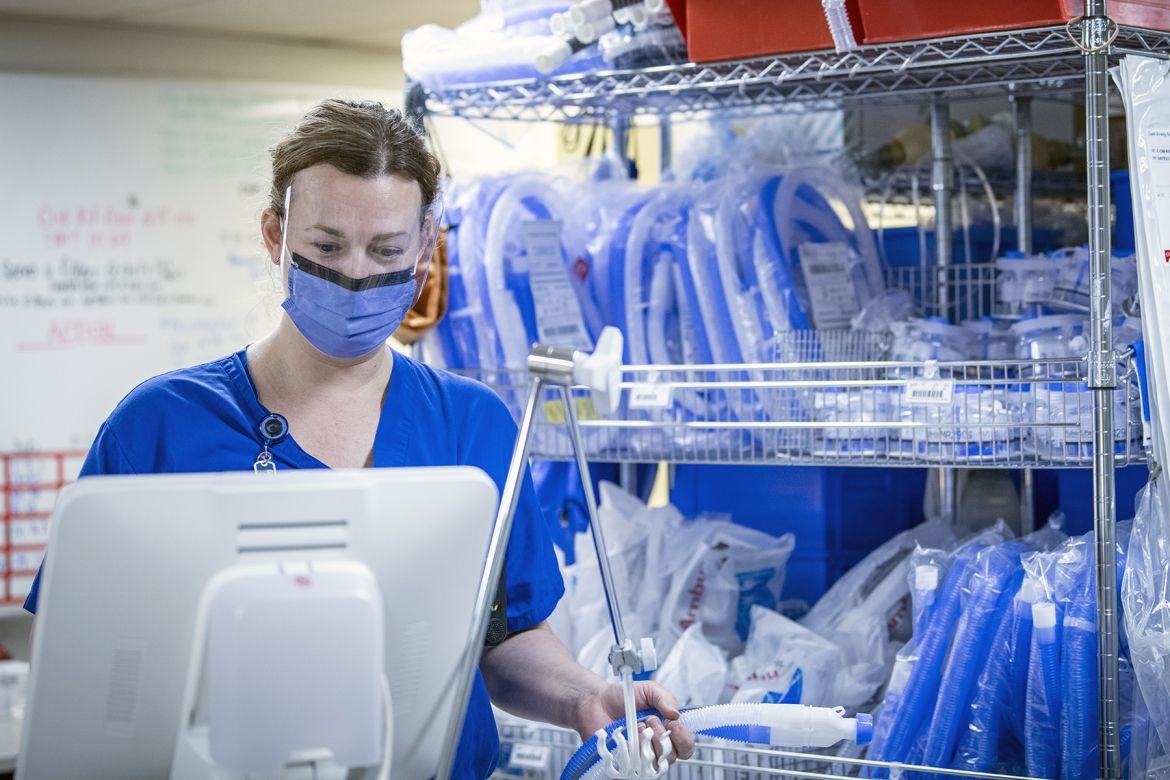
Respiratory Therapist Sarah Stanley prepares equipment for use in the ICU.
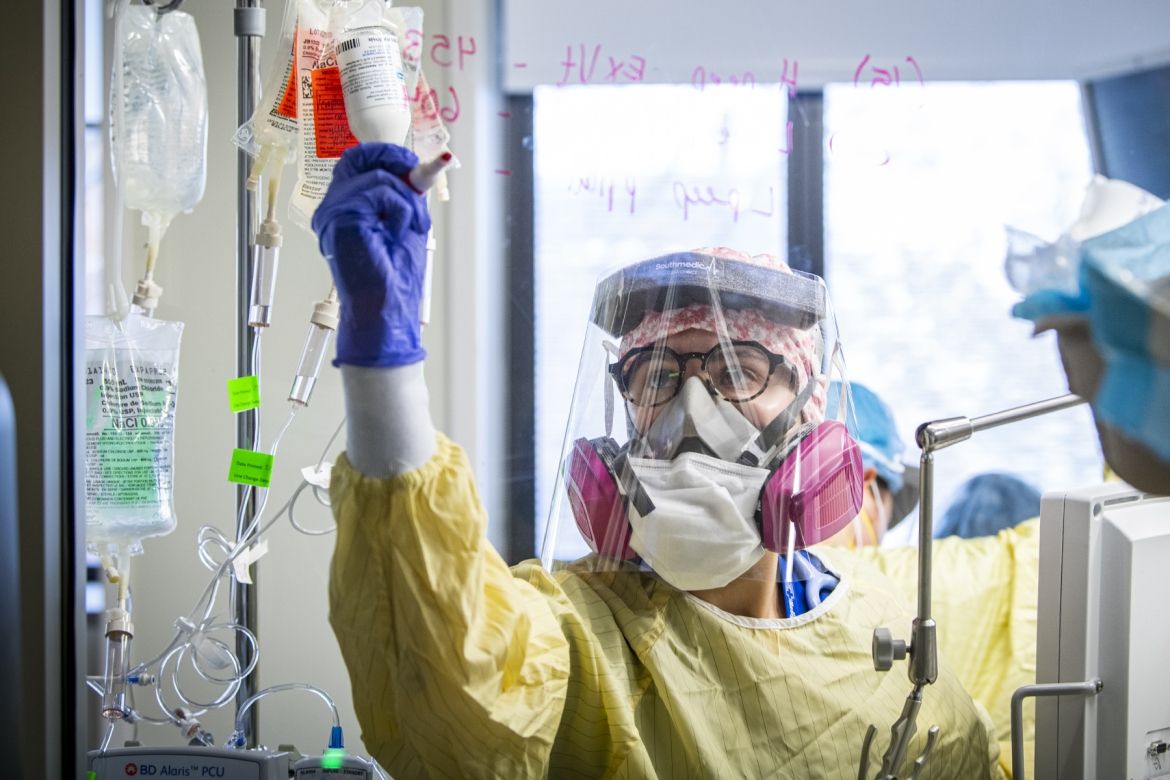
Riley Moss, a Respiratory Therapist from the Ventilator Equipment Pool stepped up to help in the ICU.



